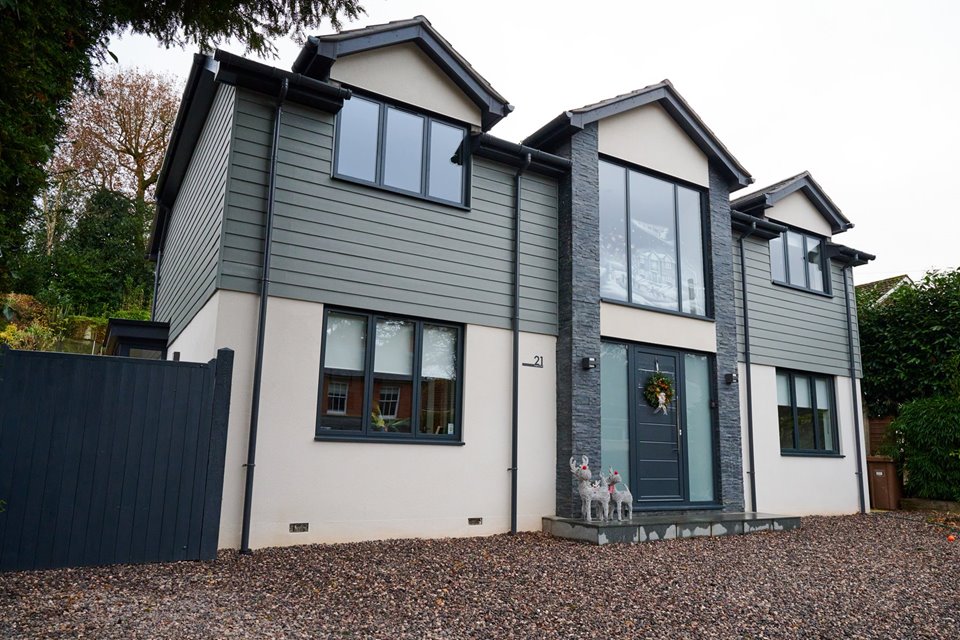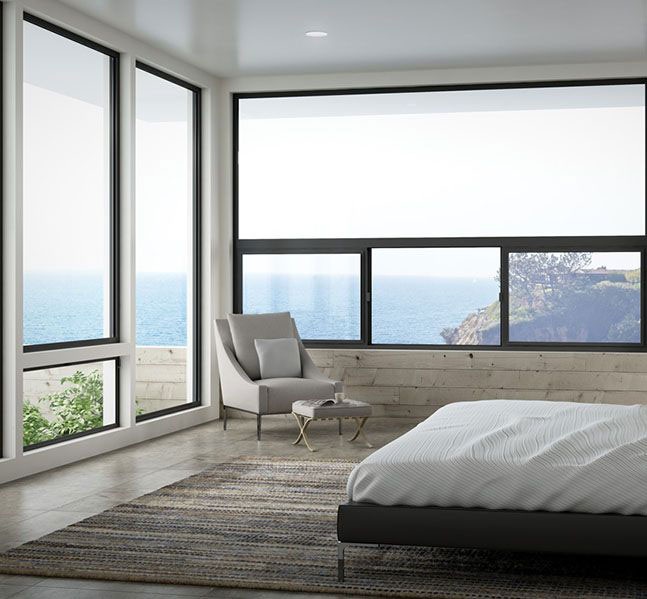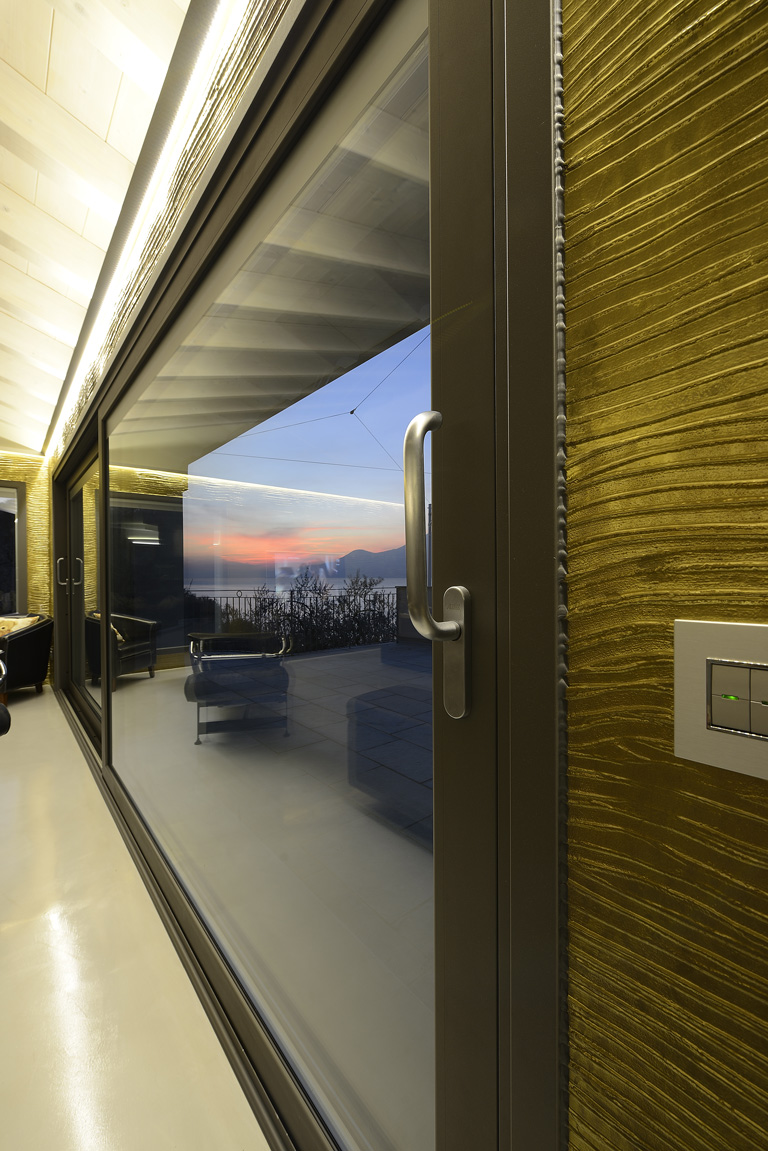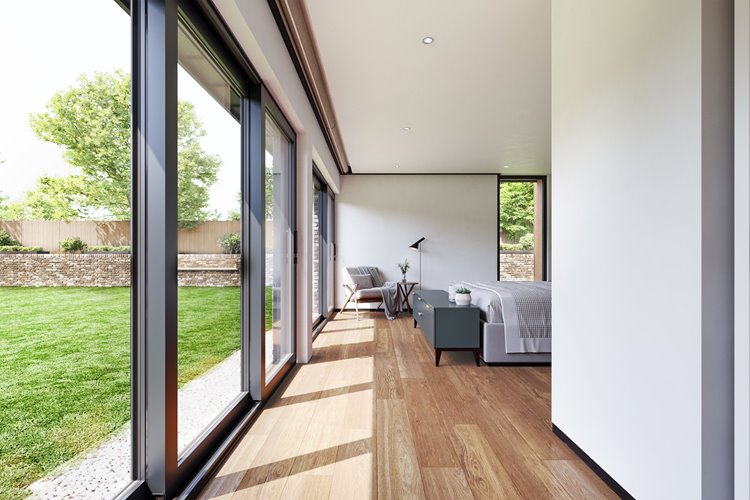Sliding Windows: What they are?

A sliding window has several key components that work together to provide smooth operation and functionality:

- Frame: The outer structure that holds the entire window.
- Sashes: The movable panels that slide horizontally, allowing the window to open or close.
- Tracks and Rollers: These guide the sashes, ensuring smooth movement when sliding the window.
- Stiles and Rails: The vertical and horizontal parts of the sashes that frame the glass.
- Weather Stripping: Seals the window to prevent air or water leaks, enhancing insulation.
- Glazing: The glass used for transparency, light, and insulation.
When selecting a window frame, understanding its operation is crucial. Sliding windows are an elegant and contemporary choice, combining practicality with visual appeal. They work seamlessly for larger homes, offering expansive views and creating a sense of continuity between indoor and outdoor spaces. They are also ideal for smaller homes, where space optimization is a priority.
Regardless of the home size, it is essential to select sliding windows that balance aesthetic appeal with key functionalities such as insulation and security. By doing so, you ensure that your choice contributes to energy efficiency, comfort, and overall home safety while maintaining a stylish and modern look.
What is a sliding window
Sliding windows operate through a horizontal movement of one or more sashes, sliding smoothly along a track. These windows, often used in forms such as sliding patio doors, are commonly installed to connect indoor spaces to balconies, verandas, or gardens, creating a seamless transition between the interior and the outdoors.
One of their key features is the efficient use of wall space. Sliding windows allow for large glass panels that maximize natural light, making rooms brighter and more open. Additionally, the sliding mechanism eliminates the need for an inward-opening sash, making them ideal for compact spaces such as kitchens or rooms with limited depth, where preserving usable space and maintaining furniture arrangements is crucial.
In summary, sliding windows offer a modern aesthetic and enhance the connection between indoor and outdoor environments. They emphasize space optimization, ease of movement, and practicality, making them a functional and stylish choice for contemporary living spaces.
Sliding windows and thermal-acoustic insulation
While aesthetic and design preferences often influence the choice of sliding windows, it is equally important to consider the technical performance of the product. Sliding windows typically feature large glass surfaces, which enhance natural light within a space. However, for these windows to perform effectively, they must also provide robust thermal and acoustic insulation.
The choice of frame material plays a crucial role. Thermal break aluminum is particularly effective, offering inherent insulation properties that prevent condensation and help maintain a comfortable indoor temperature. For larger areas like sliding windows and patio doors, the type of glass is just as important. Opting for double or triple glazing significantly enhances thermal and sound insulation while slightly reducing brightness.
Innovative glass technologies, such as selective or photochromic glass, are worth considering, especially for large south-facing windows in hotter climates. These advanced options can automatically regulate the amount of solar energy—both light and heat—entering a room. Although these solutions may come at a higher cost, they provide excellent performance benefits for large sliding windows.
Finally, it is essential to choose appropriate sash-closing and sliding mechanisms to ensure optimal insulation. Proper installation by certified professionals is critical for achieving the best results. Companies like richocean Building, with extensive experience and certifications, ensure flawless installations that enhance the window’s insulation and overall performance.


